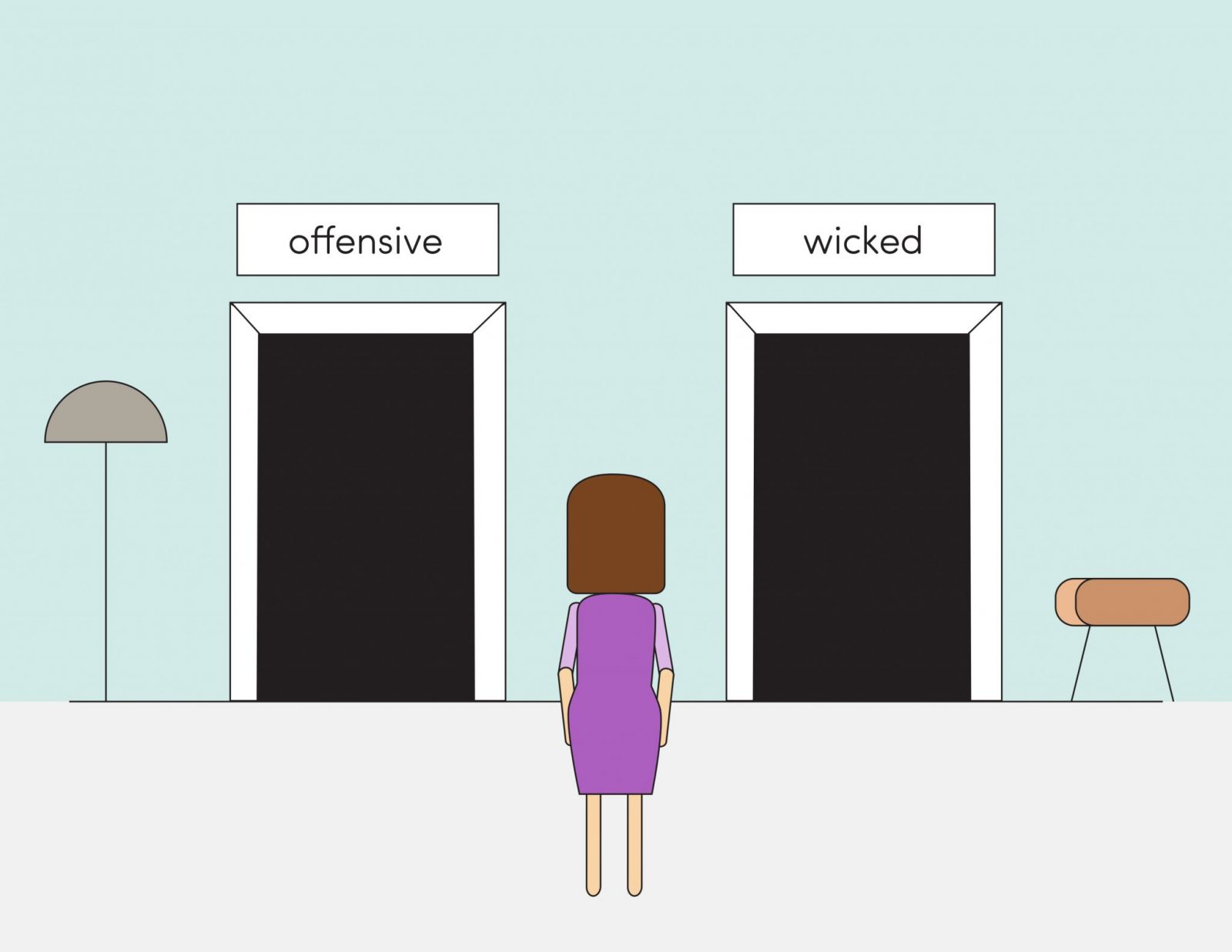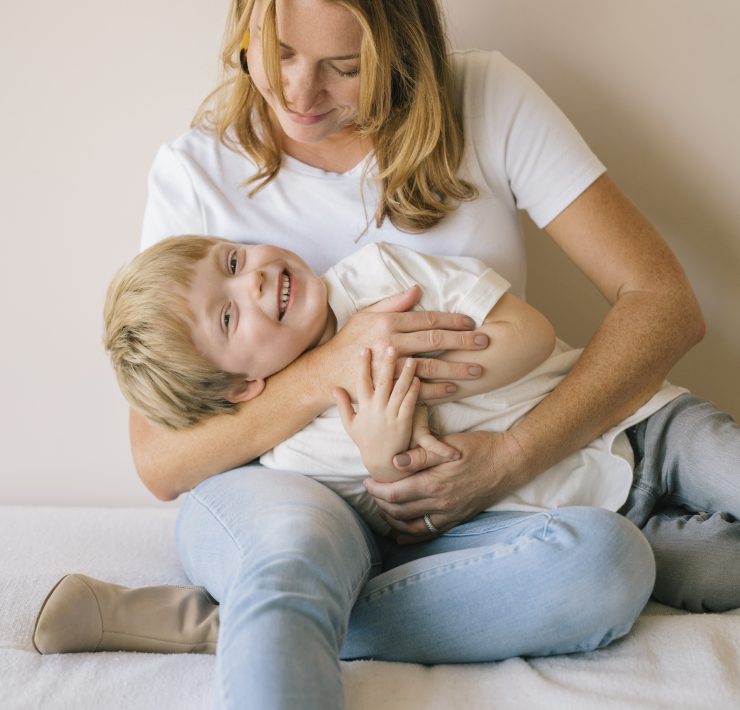It’s not a parenting philosophy that ignites the war against us. It’s our mere existence.
I consider my stepsons to be my children. They were 8 and 12 when I started dating their Daddy. For 10 years, we shared custody of them with their mother. One week with us, one week with her, back and forth. Throughout their childhood, I drove car pool, packed lunches, restrained myself from creating elaborate school projects because the forms specifically said to make the students do it themselves even though none of the other parents listened and your kid absolutely did not build that Spanish mission on his own. I stayed home from work to be with them when they were sick. I drove them to guitar lessons and Little League practices, hosted playdates and birthday parties, signed permission slips.
I was their mother.
I am their mother.
And so is my husband’s ex-wife. She is 100% their mother. I was not a replacement for her on the weeks the boys were in our custody. She and I are not interchangeable, and we are not in competition. Our sons have me in addition to her.
When I married my husband, I expected his ex to have comments on my boundaries as a stepmom. I expected she might even feel threatened by my relationship with her sons.
What I didn’t expect was for other people to feel the same.
One afternoon, I stopped by Henry’s elementary school to pick up his homework. He was in our custody the week he came down with the flu, and his teacher left a pile of worksheets in the office for me to pick up.
“I’m so sorry. Whose mom are you again?” the receptionist asked.
“Henry’s.”
“Oh, I have his pile right here.”
Before she could hand it to me, Henry’s principal stopped what she was doing, barged into the lobby, and announced:
“She’s Henry’s stepmother. Not his mother.”
It took me a moment to understand what she had said. I hadn’t made a conscious choice to call myself Henry’s mom. I had simply answered the question “which kid’s homework are you here for?”
If I had walked into Henry’s school that day with my dog and called myself its mommy, nobody would have batted an eye. But calling myself a mom to my human stepchild was somehow interpreted as offensive.
The boys and I had exactly one conversation about what they wanted to call me. Shortly after we met, Henry said to me, “I have too many people in my life with J names. Can I change yours?”
“Sure. What do you want to call me?”
“Pmessica.”
I found it appropriate, given its similarity to PMS, a condition which defines me at least two days a month.
The boys are now 20 and 24 and still call me Pmessica. Their friends call me Pmessica. My friends call me Pmessica. I introduce myself as their stepmother, and depending on the situation, they refer to me as their stepmom, parent, and even mom.
Henry’s Little League teammates would often ask, “Are you Henry’s mom?” And I would answer, “Yes. I’m Henry’s stepmom. His mom is here, too. She’s right over there.” Nine-year-olds completely understood that. No questions asked, except, “So can you open my Gatorade?” They didn’t care what Henry called me or what I called myself. They understood who I was to him, who his mother was, and that they could come to either of us for anything they needed. Why couldn’t adults understand that?
It’s an issue of semantics. To most people, Mother means mother and stepmother means notmother.
I find that people don’t actually have a problem with me mothering the boys. In fact, it’s just the opposite. I’m praised for the way I love them. But people do have a problem if I call myself their mother. It’s an issue of semantics. To most people, Mother means mother and stepmother means notmother.
If I had walked into Henry’s school that day with my dog and called myself its mommy, nobody would have batted an eye. But calling myself a mom to my human stepchild was somehow interpreted as offensive.
I am the first to admit that being a stepmother is different from being a mother, in much the same way that being a father is different from being a mother. But we are all parents. For those of us who take an active role in our stepchildren’s daily lives, stepparenting is parenting.
And that declaration cost me a pilot deal at a major network.
My husband and I were pitching a show about our blended family when I uttered the words, “stepparenting is parenting.” The female executive, who is also a mother, was visibly taken aback by the statement, so much so that she refused to look at me or address me for the remainder of our meeting.
Ultimately, a different network did buy our show. But those executives buckled too, during the rewrite process, insisting that I devote a scene at the end of the first episode to the off-screen mother. They worried viewers would consider her a bad mom if she allowed her children to be in the custody of their father and stepmother for an entire episode of television without making an appearance.
I left the show after the filming of the pilot.
The unmarried male executive with no children later told me he thought it was inappropriate that I had challenged the note of needing to see the mother on screen. I told him I thought it was insulting that he assumes people view my sons’ mother as irresponsible for leaving her children in my care for an extended period of time without checking on them. That call went well.
My husband and I have since adopted our youngest son, Levon. I am not his first mother, nor did I give birth to him, but no one argues that he is my son. No one challenges me when I call myself his mother.
My parenting responsibilities for him are different than they were for his big brothers, but I can say without a doubt that my love for my three boys is the same. They are my sons. And no matter what name you call me, kind or otherwise, I am their mother.
Plus, Stepfathers Step Up, Stepmothers Step On Toes and a mother’s thoughts on her son calling his stepmom “Mom.”
Jessica Butler is the co-founder of Raise, stepmother of two, and adoptive mother of one. Prior to Raise, she was a writer on USA’s "In Plain Sight" and TNT’s "The Last Ship." She and her husband, writer/producer Warren Bell, co-created the Nick at Nite series "Instant Mom," based on her life as a stepmother. She lives in Los Angeles with her husband and six-year-old son, Levon.




Maybe the show fell under the same impression that they needed to be politically correct. Either way, it’s sad that there is so much buzz around LGBTQ, but can’t openly discuss a topic that directly affects a far more majority of the population. I think you’re on the right track discussing it- it only gives you more of a voice!
Jessica, thanks for sharing this. There is still this “thing” where people are more concerned about whether you’re “the real mother” or not. What does that mean? We don’t question people who adopt children and yet, we get that look (you know what I mean) when we call ourselves stepmothers. There is absolutely nothing evil or obscene about taking care of children.
I think that we forget that sometimes, we have more in common with mom than not. We may not see the world the same, but who does? My sisters didn’t raise their kids like I did and we didn’t make an issue with that.
Once, I was told that if I were to bring my stepchildren to a rock climbing facility and their “real” mother or father wasn’t present, we wouldn’t be admitted. I was first shocked and then angry. Let’s say I’ve not set foot or recommended that place to anyone since.
Step is not a dirty word. In fact, it’s rooted in the Old English word Steop, meaning a bereaving child , orphan. Of course today, children still have in most cases both parents. They are still grieving the lost of the family unit.